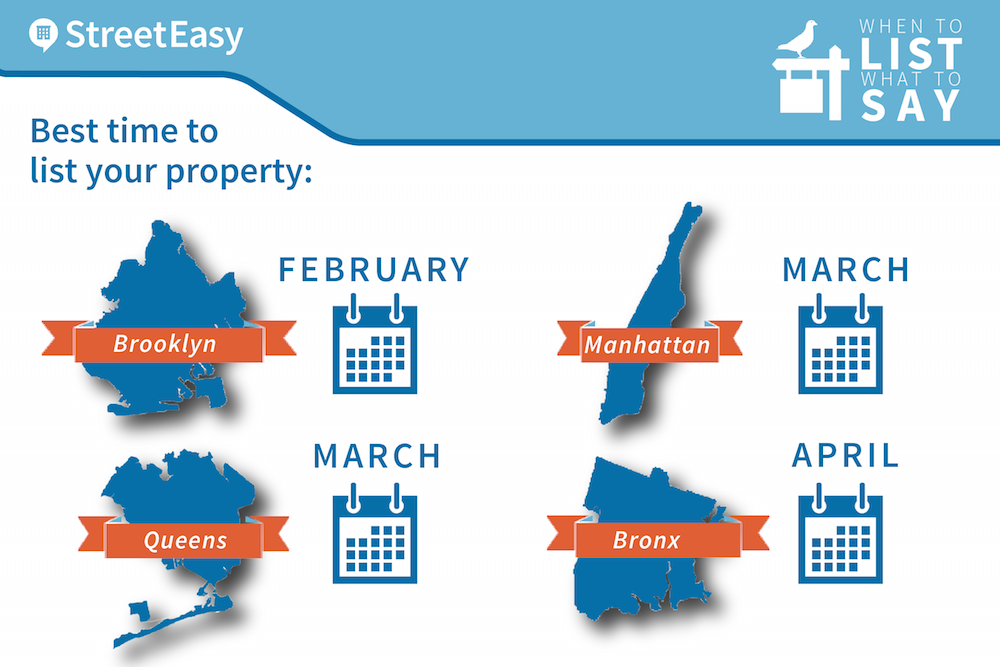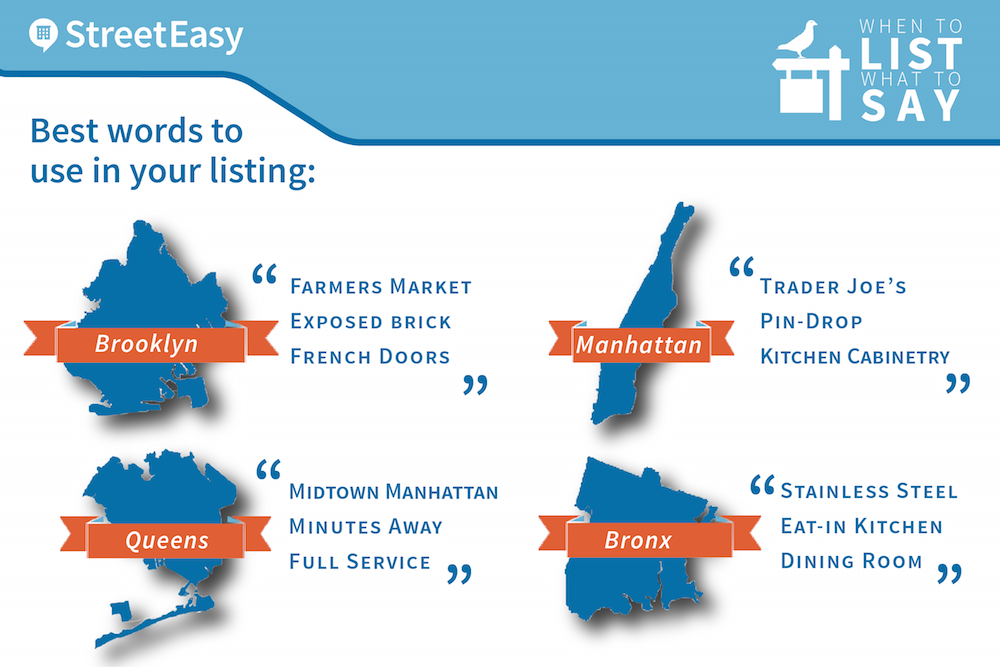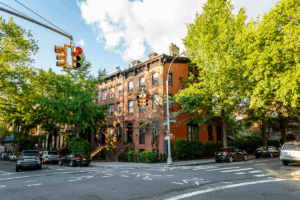Just like the temperatures outside, the New York City real estate market is heating up for the most active season of the year: spring. For sellers looking to unload their homes quickly and with the fewest discounts, StreetEasy revealed two of the most important factors that lead to a faster sale: when to list your home and the words you use to describe it.
When is the best time to sell a home in NYC?
If you are a homeowner thinking about selling this spring, timing your listing — even down to the week you post — is crucial to selling your home quickly. Selling a home quickly ensures that the property won’t languish on the market, requiring deeper discounts in order to entice buyer interest. To identify the optimal time to list, we measured supply (number of listings available on StreetEasy), demand (volume of page views of sales listings and agent contacts) and the final outcome of sales listings.
Our historical data shows that properties listed before the year’s largest peak in demand and peak in supply hit the sweet spot: Getting to the “top of the pile” as buyers start to ramp up interest but also getting ahead of the competition before it gets fierce. For New York City, demand is highest in April and supply is highest in June, so homes listed in March are perfectly positioned ahead of those peaks. The discount rate is historically low in March as well, meaning the seller may get a greater share of their original asking price if they list in March.
Here are the optimal times to list by borough:

Similar to New York City as a whole, demand is highest in April and supply is highest in June for Manhattan and Queens, so listing your home in March may lead to a faster, full-price sale. Bronx residents have a bit more time, with April being the optimal month to list. In Brooklyn, the median days on market is lowest in late February, making it the most optimal month to list in that borough overall. But if you Brooklynites haven’t listed yet, fear not: although February is the better month, the prime weeks occur a little bit later in the spring during the second and third week of March. (Note: Staten Island was omitted from the study due to an insufficient volume of data to conduct the analysis.)
Listing descriptions are both art and science
Some sellers use listing descriptions as a way to convey the basics about the home. Savvy home sellers, however, use listing descriptions as an opportunity to play up the unique features of their home which often leads to a shorter time on market. What you include and how you phrase features could potentially make or break a buyer’s interest in your home. StreetEasy analyzed thousands of listing descriptions to identify phrases that impact the speed of a sale, providing insight into buzzwords and themes to highlight when crafting a home’s description for prospective buyers.
Across all boroughs, descriptions of slower selling listings were generic and uninformative, with phrases such as “large room” or “modern kitchen,” along with common calls to action like “must see” or “priced to sell.”
Fast-selling listings were full of descriptive phrases that tuned into details of a home and perks of its location, with each borough having a theme of its own.
- In Manhattan, plenty of storage and that ever-elusive quiet space are at the top of buyers’ minds, with phrases such as “kitchen cabinetry” and “pin drop” trending in the descriptions of quicker sales.
- Brooklyn homes with a shabby-chic appeal connects to Brooklyn’s industrial heritage, which resonates very well with buyers. Phrases such as “exposed brick,” “white oak,” and “French doors” were popular among listings that sold the quickest.
- Homes that sold fastest in the Bronx included descriptions of communal spaces for the family, including phrases such as “living room,” “dining room” and “eat-in kitchen.”
- Rather than specific unit amenities, transportation convenience is the secret for a quick sale in Queens. Homes playing up proximity to transportation or amenities with “minutes away,” a “short walk” or close to “subway lines” were snatched up the fastest.
The takeaway: Be specific and elaborate on details that make a home unique. If a home is a short walk to the market, avoid phrases such as “close to shopping,” and explain the apartment is “three blocks from Trader Joe’s.” If you updated your kitchen, rather than generalizing with a phrase such as “modern kitchen,” replace with specific components of the room. For example, if the kitchen has stainless steel appliances or custom kitchen cabinetry, call these out clearly.









